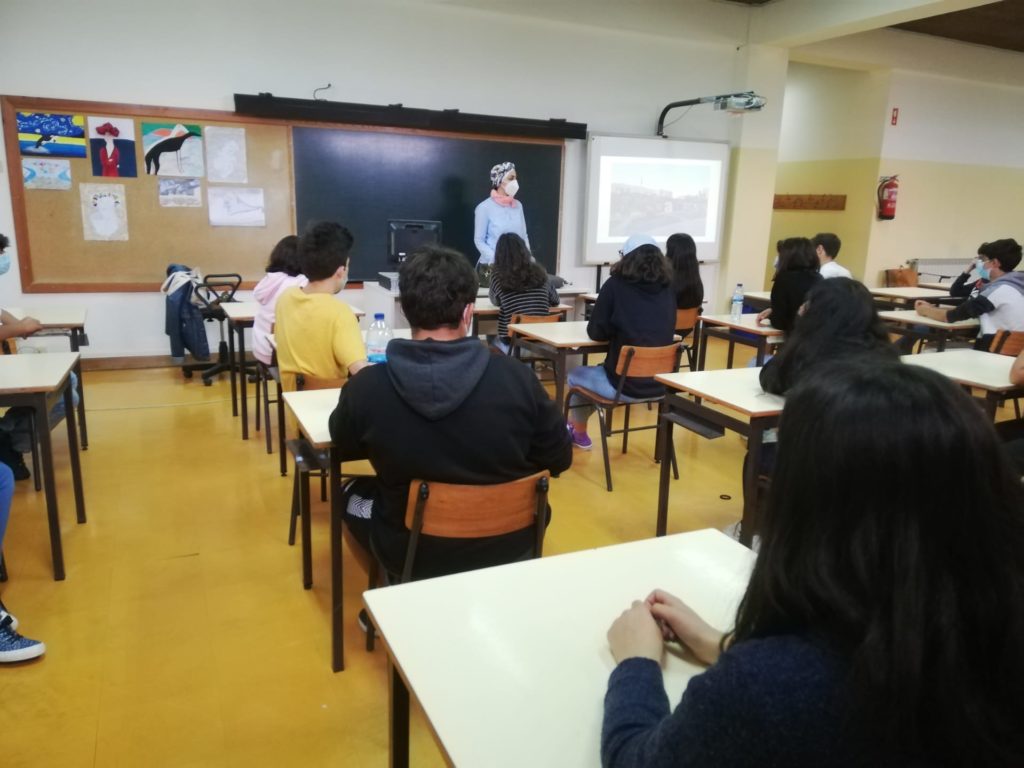Ghalia is a Syrian woman who has been in Portugal for almost 6 years.
Although her Portuguese is pretty much perfect, every time she goes to schools she always talks a bit about how her country was before the war, how the journey to Portugal went and how integration played out. She wants to make sure that students understand how difficult it can be to adapt to a new place where you don’t anyone, you don’t understand how things works and especially you cannot speak the language. She asks student to imagine how lonely it can be not having anyone to talk to because no one knows what you are saying. To demonstrate that, she wrote on the board a few words in Arabic in order to make highlight the differences of the language!
She also asks students to think about how the pandemic kept people that love each other apart: friends, grandparents, etc, and tells them to think about that feeling of missing someone. She then proceeds to explain that is how refugees feel when they have to leave their family, their home, their friends behind.
Portuguese version
O poder de saber falar a língua
A Ghalia é uma senhora síria que vive em Portugal há quase 6 anos.
Embora o seu português seja quase perfeito sempre que vai às escolas, ela sempre fala um pouco sobre como era o seu país antes da guerra, como foi a jornada até Portugal e como foi a integração. Ela quer ter certezas de que os alunos entendem é difícil adaptarmo-nos a um lugar novo onde não conhecemos ninguém, não entendemos como as coisas funcionam e, principalmente, não falamos o idioma. Ela pede aos alunos que imaginem como pode ser solitário não ter ninguém com quem conversar, porque ninguém entende que estamos a dizer. Para demonstrar isso, ela escreveu no quadro algumas palavras em árabe para fazer destacar as diferenças do português para o árabe!
Ela também pede aos alunos que pensem como a pandemia manteve as pessoas que se amam separadas, amigos, avós, e diz para pensarmos sobre a sensação de sentir falta de alguém. Ela então explica que é como os refugiados se sentem quando têm que deixar a sua família, a sua casa e os seus amigos para trás.

